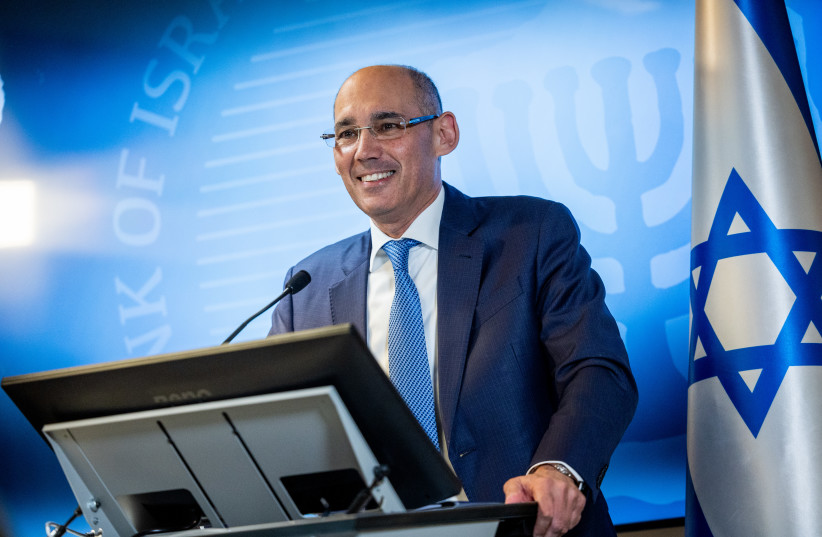Bank of Israel Governor, Amir Yaron, will stay on for a second five-year term after Prime Minister Benjamin Netanyahu and Finance Minister Bezalel Smotrich agreed on an extension, removing a major market uncertainty that has lasted much of the year.
The decision to extend Yaron's time in charge of the central bank comes as Israel has been fighting a war with Hamas in Gaza for the past six weeks. It would be brought to cabinet for a vote at its next meeting, Netanyahu and Smotrich said in a joint statement.
"Governor Yaron accepts the request to serve for another term," the central bank said.
Yaron thanked Netanyahu and Smotrich for their confidence in him and the Bank of Israel.

Planning ahead
"We have many important tasks ahead of us in the economic arena and I will do everything in my power so that we meet them successfully and professionally for the benefit of the economy and the country," Yaron said.
Yaron's current five-year term runs through the end of 2023.
"It's the right thing to do for the markets right now," Smotrich's spokesman said. "They work well together professionally and it's the right decision."
Yaron last month had said he would extend his term until at least the end of the current emergency period to help navigate the challenges to Israel's economy while the country was at war.
The issue of whether Yaron would stay for a second term, or if Netanyahu would offer him another one, has hung over markets for months. Yaron had long said he would announce his decision after the Jewish holiday period that ended on October 7, which was when the war broke out.
Actions taken during the past term
While not tipping his hand, Yaron told Reuters in September that the last five years have been "one of the most challenging" for any Israeli central banker ever, citing five election cycles, the COVID pandemic, the Ukraine-Russia war, inflation, and the government's highly contested plan to overhaul the judiciary that sparked mass protests.
Yaron had been critical of the government's judicial plan and it was believed this could lead Netanyahu to not offer him a second term. He has also had to fend off criticism and potential legislation from lawmakers over steep rate increases that have boosted bank profits and hurt mortgage holders, while banks were slow to pass on higher rates to savings accounts.
In a bid to battle inflation, policymakers raised the benchmark interest rate ILINR=ECI from 0.1% in April 2022 to 4.75% in May 2023. Rates have been on hold since then.
More recently, Yaron has cautioned the government to be more responsible in allocating spending for the war.
Netanyahu in 2018 chose Israeli-born Yaron, a professor at the Wharton School of the University of Pennsylvania, to head Israel's central bank, citing the need for an expert on the global economy.
He succeeded Karnit Flug, who opted not to seek a second term.
